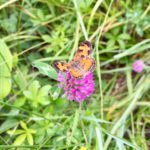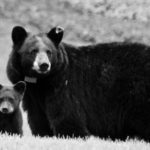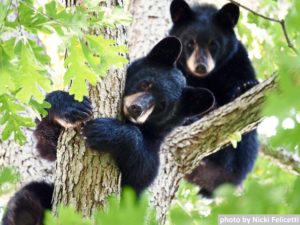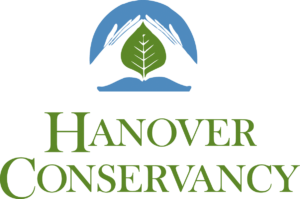Although hunting for various species occurs throughout the year, deer season is by far the most popular. In New Hampshire, the full season runs from September 15 – December 15 each year.
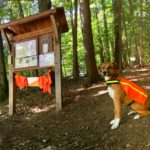
Remember to wear your blaze orange or hi-vis yellow and take precautions with dogs and kids: bells and bright colors are always a good choice!
Loaner safety vests and bandanas are available at many of our trailheads. Please return them after your hike!




